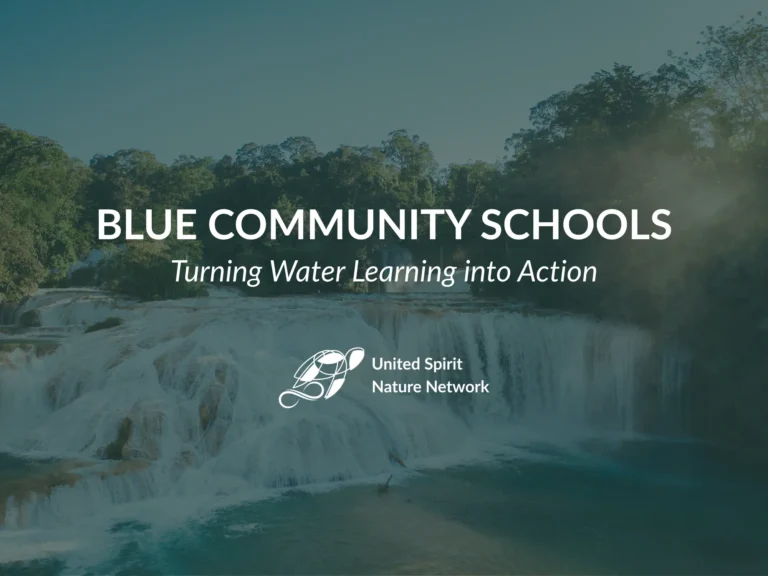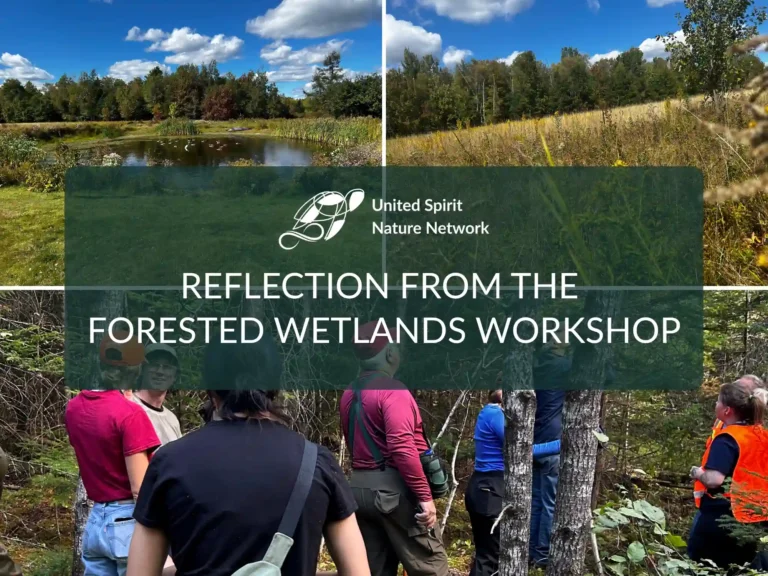Reflections on Fredericton’s “Anti-Racism Panel Discussion – Our Stories, Our Power” and what they mean for United Spirit Nature Network
Why I went
As Executive Director of United Spirit Nature Network (USNN), I spend most of my days designing outdoor programs where Indigenous, settler, and newcomer youth learn side-by-side. I joined this panel on 18 June 2025 looking for ideas on how to keep those spaces safe, culturally rich, and truly anti-racist. Five speakers gifted lessons I do not want to lose.
Five stories in full color
Tiger J. Levi – Healing starts with one feather
Role: Reconciliation Training Coordinator & Developer, Joint Economic Development Initiative (JEDI)
The story: Tiger found a battered eagle feather forgotten in an office closet. He carried it into a sweat-lodge ceremony, gently steaming and smoothing the barbs until they re-aligned.
The lesson: “Like that feather, people need hands-on support to remember their shape,” he said, framing reconciliation as an action not a slogan. JEDI’s new Indigenous Reconciliation Awareness Module teaches employers exactly that.
Larry Finkelman – Silence is not a safe place
Role: Co-chair, Fredericton Committee to Combat Antisemitism; psychologist & poet
The story: Recuperating in hospital, Larry overheard a fellow patient linking “everything Jewish to everything evil.” A place of healing suddenly felt hostile.
The lesson: Hatred often hides behind every day chatter until someone names it. “Myths thrive when we don’t challenge them,” he warned, urging BY-STANDER intervention wherever bigotry surfaces.
Arnab Taranga – Confidence against the chorus
Role: Sir Howard Douglas Scholar & fourth-year Sociology–Criminology student, UNB
The story: On his first day in Canada, strangers—including uniformed officials—mocked his accent while he tried to find a city bus. Arnab decided to answer with humors: “If they were perfect, they’d tell me I breathe wrong.”
The lesson: International students are often the earliest targets of xenophobia. Allies must be as public and persistent as the insults they hear.
Lima Samim – Hijab by choice, dignity by right
Role: Afghan newcomer & scholarship recipient, Multicultural Association of Fredericton (MCAF)
The story: After fleeing restrictive laws at home, Lima expected freedom in Canada. Instead, customers in her retail job questioned her hijab and accent—humiliations that “stick longer than the faces that say them.”
The lesson: Islamophobia flips the promise of refuge into a new exile. Respect grows only when people understand the difference between religion and culture, and when they speak up alongside those targeted.
Alaba Olawunmi – The weight of small cuts
Role: Cyber-security analyst, youth coach & community speaker
The story: In school hallways she was told her name was “too hard,” her lunch “too smelly,” her clothes “too bright.” Each comment felt minor—until they piled into a wall.
The lesson: Micro-aggressions in childhood become macro-barriers to belonging. Public institutions must stop asking racialised youth to explain themselves and start teaching everyone to celebrate differences.
What these stories teach USNN
Challenge heard on the panel | Outdoor-program response |
People need hands-on support to heal (Tiger) | Pair every youth cohort with a trained Elder or Knowledge Keeper; open or close each field day with a brief ceremony acknowledging land and purpose. |
Safe places can still host hate (Larry) | Publish a Trailhead Respect Code; train staff and volunteers in real-time by-stander intervention. |
Newcomer youth feel alone first (Arnab) | Launch a Buddy Tree scheme: newcomer and Indigenous campers plant a sapling together and become each other’s camp mentors. |
Religious expression is misunderstood (Lima) | Offer opt-in cultural-appreciation stations—e.g., “Dress the Tree” where participants share meanings behind clothing, colors, or symbols. |
Micro-aggressions start young (Alaba) | Bake name-pronunciation practice into ice-breakers; every participant’s name appears phonetically on eco-friendly nameplates. |
Building the forest we need
- Train the trainers – All facilitators will complete JEDI’s Reconciliation Awareness Module by spring 2026.
- Measure belonging – Add pre-/post-program “Sense of Inclusion” surveys adapted from Statistics Canada’s General Social Survey on discrimination.
- Invest in representation – Recruit staff whose lived experiences mirror those we serve: Indigenous Elders, hijab-wearing women, Black Canadian leaders, Jewish educators, and newcomers.
- Advocate beyond the trail – Join provincial youth forums to demand anti-racism curriculum in every K-12 outdoor-ed experience.
Closing thought
An eagle feather, a hospital ward, a bus stop, a retail counter, a classroom—each reminds us that racism is a toxin spread by neglect. Yet a forest, well tended, shows how countless different leaves can photosynthesise side-by-side.
USNN invites you to plant that forest with us. Write to info@usnn-nb.ca to volunteer, partner, or sponsor our Youth Guardians initiative. Under the trees, we all breathe the same air—let’s make sure it is free of hate.









